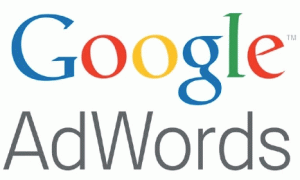Google Updates AdWords API Terms To Comply With FTC Antitrust Settlement
As part of its antitrust settlement with the US Federal Trade Commission (FTC) in January, Google agreed to allow ad campaigns to be exported to third party ad networks using its API. Here’s what Google said in a blog post at the time of the settlement earlier this year: Advertisers can already export their ad […]

Advertisers can already export their ad campaigns from Google AdWords. They will now be able to mix and copy ad campaign data within third-party services that use our AdWords API.
The following is the relevant language from the FTC statement about the export of AdWords campaigns at the time of the antitrust settlement:
Google has agreed to remove restrictions on the use of its online search advertising platform, AdWords, that may make it more difficult for advertisers to coordinate online advertising campaigns across multiple platforms.
Advertisers who wish to use a search advertising platform spend considerable time, effort, and resources preparing extensive bids, including keywords, price information, and targeting information. Once an advertiser has entered the information necessary to create a search advertising campaign, the advertising platform sends critical data back to the advertisers that they need to evaluate the effectiveness of, and to further manage, their campaign. Advertising platforms use application programming interfaces, known as APIs, to give advertisers direct access to these advertising platforms so they can develop their own software programs to automatically manage and optimize their advertising campaigns.
Some FTC Commissioners were concerned that Google’s contractual conditions governing the use of its API made it more difficult for an advertiser to simultaneously manage a campaign on AdWords and on competing ad platforms, and that these restrictions might impair competition in search advertising.
Late Friday afternoon Google updated its AdWords API terms to reflect the above agreement. Below are the verbatim changes:
- We’ve removed former Section III(2)(c)(i) (“Co-Mingling of AdWords Data: Input Fields for Creation Functionality and Management Functionality”), which covered AdWords API clients showing input fields that collected or transmitted campaign management data in the same tab or screen with the content of third parties.
- We’ve removed former Section III(2)(c)(ii) (“Co-Mingling of AdWords Data: Copying Data”), which covered AdWords API clients offering functionality that copied campaign management data between Google and a third party.
- We’ve updated Section (III)(2)(f) (“Required Minimum Functionality”), in part by adding subsection (ii) (“Data Transmission”), which requires disclosure to users of the names of networks the data is transmitted to, explanation of any incompatibilities, and opportunities for users to resolve any issues.
In the past Google would not permit automated, batch copying of AdWords campaign data for export to another ad network (read: Bing). Here’s the full language that was removed and replaced on Friday afternoon:
- Input Fields for Creation Functionality and Management Functionality. The AdWords API Client must not show any input fields for collecting or transmitting AdWords API Campaign Management Data in the same tab or screen with the content of Third Parties or input fields for collecting or transmitting data to Third Parties, with the following exception: Editing of the following fields across Google and Third Parties is allowed in the same tab or screen: keyword match type, keyword bid, destination URL, campaign budgets, campaign name, ad group name, and ad group bid.
- Copying Data. The AdWords API Client may not offer a functionality that copies data between Google and a Third Party. If you run your own advertising network and the AdWords API Client offers functionality that copies data between Google and your advertising network, then you must ensure that end-users must manually select AdWords campaigns or campaigns on that network for copying, so that they may optimize them, prior to each instance of import into, or export from, that network.
When asked about the changes this morning a Google spokesperson provided the following statement:
“We’re updating our AdWords API Terms and Conditions to give advertisers that use third party ad management tools even more flexibility with their campaigns.”
Opinions expressed in this article are those of the guest author and not necessarily Search Engine Land. Staff authors are listed here.
Related stories